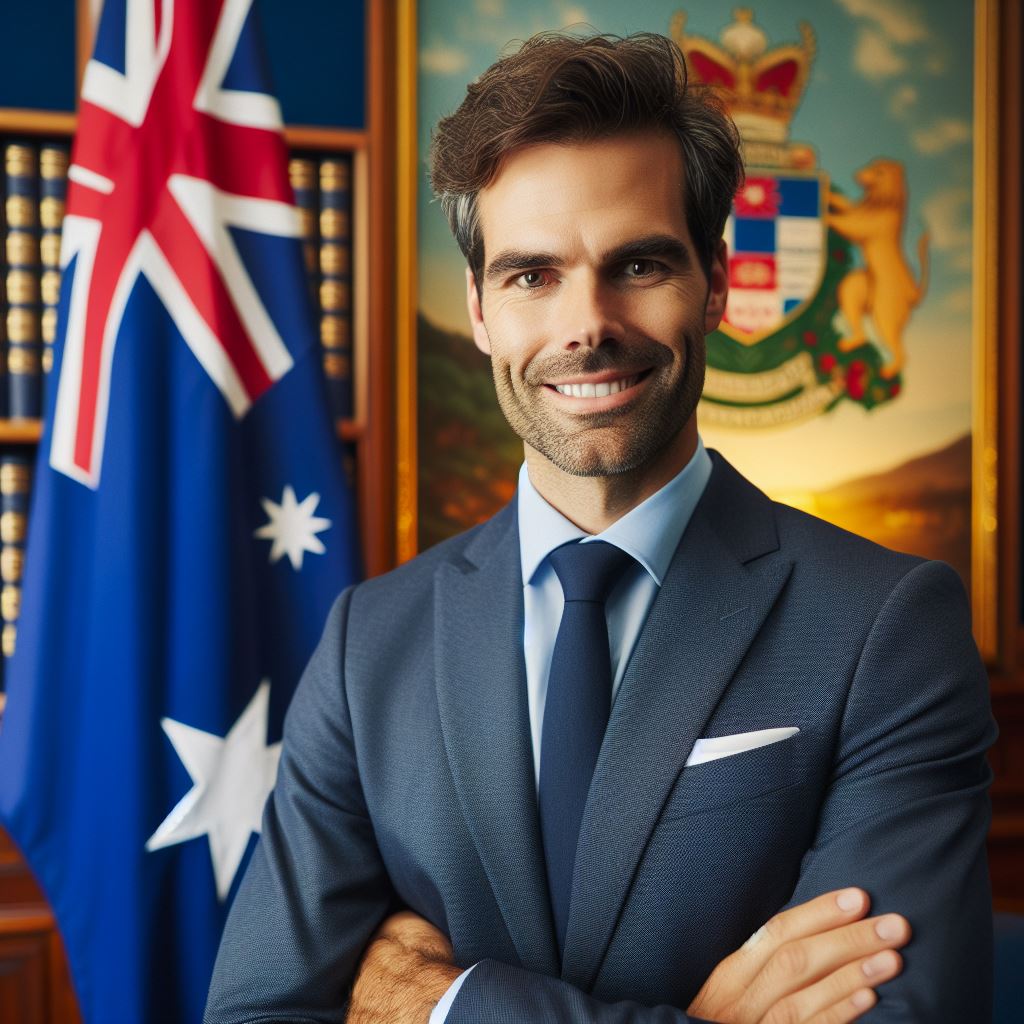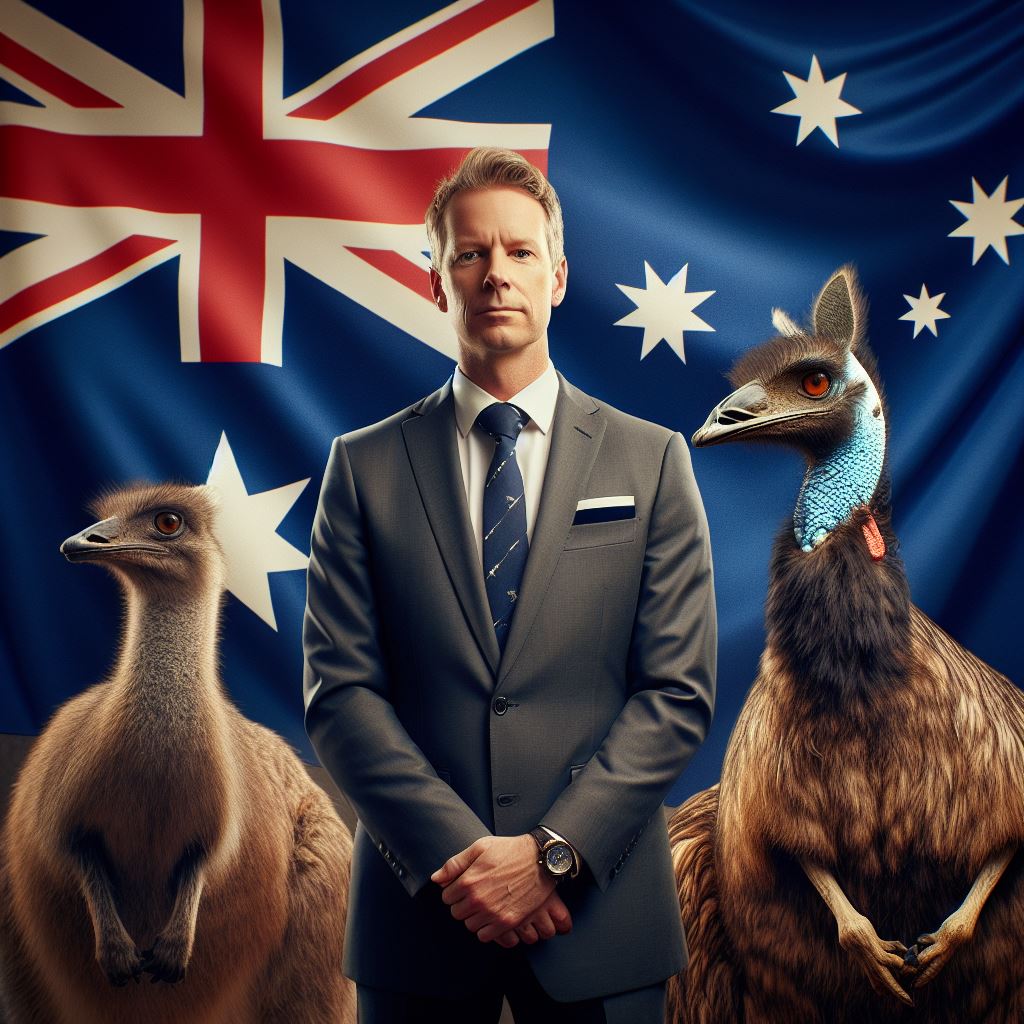Introduction
Australian diplomats play a crucial role in representing their country on an international platform.
They are the face of Australia in foreign countries, serving as the primary contact and representative for their government.
It is through these diplomats that Australia engages with other nations, fosters diplomatic relations, and promotes its national interests.
The key responsibilities of Australian diplomats encompass a wide range of tasks and duties.
These responsibilities include negotiating agreements and treaties, providing consular services and assistance to Australian citizens abroad, promoting trade and investment opportunities, reporting on political and economic developments in host countries, and representing Australia at international organizations and conferences.
Australian diplomats also play a vital role in advocating for Australia’s interests and values, including promoting human rights, advancing gender equality, and addressing global issues such as climate change and terrorism.
They work closely with their counterparts in foreign governments, building relationships and networks that contribute to Australia’s national security and prosperity.
In addition to their diplomatic duties, Australian diplomats also engage in public diplomacy activities, such as cultural exchanges, educational programs, and media engagement, to enhance Australia’s image and promote understanding between nations.
In review, Australian diplomats hold a significant responsibility in representing their country’s interests, fostering diplomatic relations, and advancing Australia’s national priorities.
Through their work, they contribute to Australia’s prosperity, security, and influence on the global stage.
The Role of Australian Diplomats
Australian diplomats play a crucial role in representing the nation’s interests on the global stage. They serve as key representatives of Australia, carrying out various responsibilities to advance the country’s foreign policy objectives.
Overview of the Role and Significance of Australian Diplomats
Australian diplomats are essential in maintaining strong diplomatic relations with other nations. They act as ambassadors and envoys, promoting Australia’s interests, values, and priorities abroad.
Representing Australia’s Interests Internationally
One of the primary responsibilities of Australian diplomats is to represent the interests of their home country in international forums, such as the United Nations and bilateral meetings.
They advocate for Australian policies and negotiate agreements that benefit the nation.
Advancing Australia’s Foreign Policy Objectives
Australian diplomats actively contribute to the advancement of the nation’s foreign policy objectives.
They engage in diplomatic discussions, attend international conferences, and participate in negotiations to shape international agreements that align with Australia’s interests.
By effectively fulfilling their role, Australian diplomats contribute to a wide range of areas
Economic Diplomacy
Australian diplomats nurture economic relationships with other countries by promoting trade, investment, and business opportunities. They work towards creating favorable conditions for Australian companies to expand into international markets.
Security and Defense
Diplomats play a pivotal role in addressing security and defense issues on a global scale.
They collaborate with international counterparts to combat terrorism, address regional conflicts, and strengthen defense relationships, ensuring the safety and security of Australia and its allies.
Climate Change and Environmental Issues
Australian diplomats actively engage in discussions and negotiations related to climate change and environmental issues. They work towards global cooperation to mitigate the impact of climate change and promote sustainable environmental practices.
Human Rights and Good Governance
Australian diplomats advocate for human rights and good governance internationally. They speak out against human rights abuses, support democracy and rule of law, and promote social justice on a global scale.
In performing their duties, Australian diplomats employ various strategies:
Diplomatic Negotiation
Diplomats engage in negotiations to protect and promote Australia’s interests. They use diplomatic skills and strategies to reach agreements in areas such as trade, security, and cooperation.
Cultural Diplomacy
Australian diplomats engage in cultural exchanges, promoting cultural understanding and fostering strong people-to-people connections between Australia and other nations. This helps to build trust and deepen relationships.
Public Diplomacy
Diplomats communicate Australia’s values, policies, and achievements through public diplomacy efforts. They engage with local communities, influential individuals, and media to shape positive perceptions of Australia.
Consular Services
Australian diplomats provide consular services to Australian citizens residing or traveling abroad. These services include assistance during emergencies, consular protection, and support for Australian travelers.
Your Personalized Career Strategy
Unlock your potential with tailored career consulting. Get clear, actionable steps designed for your success. Start now!
Get StartedOverall, Australian diplomats hold critical responsibilities in representing and advancing Australia’s interests internationally.
Through their diplomatic efforts, they work towards building partnerships, resolving conflicts, and shaping the global agenda to benefit Australia.
Read: The Future of Firefighting in Australia
Political Responsibilities
In this blog section, we will delve into the political responsibilities of Australian diplomats. Let’s explore:
Political Aspect of a Diplomat’s Responsibilities
Australian diplomats play a crucial role in the country’s political landscape. Their responsibilities extend beyond representing Australia to actively shaping foreign policy.
They serve as the link between the Australian government and foreign governments, ensuring that political interests are protected and advanced.
By understanding the political dynamics of both Australia and the host country, diplomats can effectively navigate complex diplomatic relationships.
Role in Conducting Negotiations and Maintaining Diplomatic Relations
Negotiations are a fundamental part of a diplomat’s responsibilities. Whether it be trade deals, security agreements, or cultural exchanges, diplomats are at the forefront of bilateral negotiations.
They engage in dialogue with foreign counterparts, advocating for Australia’s interests while finding common ground for cooperation.
Furthermore, diplomats are essential in diplomatic networking, maintaining relationships with other countries and international organizations.
Explaining Participation in Bilateral and Multilateral Meetings
Participation in bilateral and multilateral meetings is crucial for diplomats. These meetings allow for dialogue and cooperation on various issues.
Australian diplomats represent the country’s positions, conveying Australia’s perspectives on global challenges, such as climate change and human rights.
Through active participation, diplomats build partnerships and alliances, fostering international cooperation and advancing Australia’s political agenda.
Mentioning Involvement in Promoting Australia’s Political Interests and Values Abroad
Australian diplomats play a vital role in promoting the country’s political interests and values overseas.
They engage in public diplomacy, presenting Australia’s stance on various issues and showcasing the country’s values and achievements.
Stand Out with a Resume That Gets Results
Your career is worth more than a generic template. Let us craft a resume and cover letter that showcase your unique strengths and help you secure that dream job.
Get HiredBy organizing events, hosting conferences, and engaging with local communities, diplomats help shape global perceptions of Australia.
Additionally, diplomats advocate for Australia’s political interests, lobbying foreign governments on important matters.
They work to create partnerships, build trust, and foster positive relationships, ensuring Australia’s voice is heard on the international stage.
Australian diplomats have a range of political responsibilities that are essential for advancing the country’s interests and values.
Through conducting negotiations, maintaining diplomatic relations, participating in meetings, and promoting political interests, diplomats actively shape Australia’s position in the world.
Their work is vital in navigating the complexities of international politics and ensuring Australia’s political standing remains strong.
Stay tuned for the next section, where we will explore the economic responsibilities of Australian diplomats.
Read: How Technology Aids Aussie Firefighters
Economic Responsibilities
Diplomats play a crucial role in the economic aspect of their responsibilities. They work tirelessly towards enhancing Australia’s trade and economic relations, attracting foreign investment, and facilitating business partnerships.
Moreover, they actively promote Australian industries and exports.
Here are some key points that highlight the economic responsibilities of Australian diplomats:
Enhancing trade and economic relations
- Diplomats act as economic ambassadors for Australia, working to strengthen the country’s trade ties with other nations.
- They participate in trade negotiations, engage in diplomatic talks, and promote Australian interests in international economic forums.
- By building strong diplomatic relationships, diplomats create opportunities for Australian businesses to expand into international markets.
Attracting foreign investment
- Diplomats actively seek foreign investment in Australia by showcasing the country’s investment potential.
- They organize business summits, investment forums, and trade fairs to attract potential investors.
- By promoting Australia’s stable economy, favorable business environment, and investment-friendly policies, diplomats encourage foreign companies to invest in the country.
Facilitating business partnerships
- Diplomats play a vital role in facilitating business partnerships between Australian companies and businesses abroad.
- They establish connections with foreign business leaders, government officials, and chambers of commerce to promote collaborations.
- By providing support and guidance, diplomats help Australian companies navigate foreign markets and overcome trade barriers.
Promoting Australian industries and exports
- Diplomats actively promote Australian industries, such as agriculture, mining, education, tourism, and technology.
- They organize trade missions, business delegations, and industry events to showcase Australia’s expertise and products.
- Diplomats work to remove trade barriers, negotiate favorable trade agreements, and increase market access for Australian exporters.
Economic diplomacy
- Diplomats engage in economic diplomacy, utilizing diplomatic tools to advance Australia’s economic interests.
- They gather market intelligence, analyze economic trends, and identify potential investment opportunities.
- Diplomats work closely with other government agencies, such as the Department of Foreign Affairs and Trade, to develop economic strategies and policies.
In essence, the economic responsibilities of Australian diplomats are vital for the country’s economic growth and prosperity.
Through their efforts in enhancing trade and economic relations, attracting foreign investment, facilitating business partnerships, and promoting Australian industries and exports, diplomats contribute significantly to Australia’s economic well-being on the global stage.
References
- “Economic Diplomacy.” Department of Foreign Affairs and Trade, Australian Government. www.dfat.gov.au/about-us/our-services/building-market-access/economic-diplomacy
- “Trade and Investment.” Department of Foreign Affairs and Trade, Australian Government. www.dfat.gov.au/about-us/our-services/trade-investment
- “Economic Diplomacy Action Plan.” Department of Foreign Affairs and Trade, Australian Government. www.dfat.gov.au/about-us/documents/economic-diplomacy-action-plan
Read: Day in the Life of an Aussie Public Servant

Consular Responsibilities
A diplomat’s consular responsibilities play a significant role in their work.
Consular services are essential in providing assistance to Australian citizens outside the country.
Diplomats provide consular support during emergencies, such as natural disasters or crisis situations.
They offer necessary help to citizens in distress, ensuring their well-being and safety abroad.
Consular officers act as a lifeline, guiding and supporting Australians facing difficulties in foreign nations.
Assistance includes helping citizens replace lost or stolen passports, providing travel advice, and offering emergency financial assistance.
Diplomats also facilitate communication between Australians abroad and their families back home.
In times of crisis, consular officers work tirelessly to locate missing citizens and offer support to their families.
During natural disasters, diplomats ensure the evacuation and repatriation of Australian citizens if necessary.
Their role in providing visa and migration services
Consular responsibilities also involve providing visa and migration services to individuals who wish to visit or migrate to Australia.
Diplomats process visa applications, conduct interviews, and make recommendations based on eligibility criteria.
They work closely with immigration authorities to ensure the smooth processing of visa and migration-related matters.
Consular officers play a crucial role in safeguarding the interests of Australian citizens traveling or living abroad.
They establish strong relationships with host governments and local authorities to ensure effective consular support.
Through consular services, diplomats aim to promote the travel and trade interests of Australia.
Consular officers also assist in the protection of Australian citizens’ rights and interests during legal proceedings overseas.
They provide information and guidance regarding local laws, legal procedures, and access to legal representation.
In case of arrests or imprisonment, diplomats visit and monitor the well-being of detained Australians.
Consular officers function as a liaison between Australian citizens and local authorities, advocating for their fair treatment.
Moreover, diplomats work collaboratively with other countries’ consular missions to provide support to dual citizens.
They ensure that dual citizens receive necessary assistance and protection, irrespective of their dual nationality.
In summary, a diplomat’s consular responsibilities include providing essential services and support to Australian citizens abroad.
They play a vital role in times of crisis, ensure the smooth processing of visa and migration services, and safeguard the interests and well-being of Australian citizens.
Consular officers act as a bridge between Australians and foreign authorities, advocating for their rights and providing assistance when needed.
Transform Your LinkedIn for Maximum Impact
Elevate your professional brand with a LinkedIn profile that attracts recruiters, showcases your expertise, and maximizes opportunities. Stand out in your industry with a profile built for success.
Boost ProfileRead: Public Service Paths: Your Guide to Success
Learn More: The Future of Policing in Australia
Cultural and Public Diplomacy Responsibilities
In addition to their political and economic duties, Australian diplomats also hold significant responsibilities in cultural and public diplomacy.
These aspects play a crucial role in furthering Australia’s influence on the global stage and fostering relationships with other nations.
Cultural and Public Diplomacy Aspect
A diplomat’s role in cultural and public diplomacy involves promoting Australia’s rich culture, arts, and education to the international community. They act as ambassadors for Australian creativity and innovation, showcasing the nation’s achievements in various fields.
Promotion of Australia’s Culture, Arts, and Education
Diplomats actively work to promote Australia’s culture, arts, and education through various channels. This includes organizing cultural exhibitions, art shows, and literary events that showcase Australian talent to foreign audiences.
Engagement with Local Communities and People-to-People Connections
Diplomats also engage with local communities in their host countries, fostering people-to-people connections and building strong relationships. By participating in local cultural activities and events, they promote cross-cultural understanding and mutual respect.
Organizing Cultural Events and Promoting Australian Identity
One of the key responsibilities of Australian diplomats is to organize and coordinate cultural events that highlight Australia’s identity. These events serve as platforms for sharing Australian traditions, values, and achievements with international audiences.
Examples of Cultural and Public Diplomacy Efforts by Australian Diplomats
- Collaborating with local organizations and institutions to organize Australian film festivals, showcasing Australian cinema and storytelling.
- Facilitating cultural exchanges by organizing art exhibitions where Australian artists can showcase their work internationally.
- Promoting Australian higher education by organizing education fairs, inviting students from other countries to study in Australia.
- Supporting Australian musicians, dancers, and theater groups in performing and touring internationally, spreading Australian cultural expressions.
- Arranging visits by Australian authors and speakers to participate in literary festivals and lecture series, promoting Australian literature and intellectual discourse.
- Collaborating with international partners to organize conferences and symposiums on topics relevant to Australia’s cultural and social landscape.
- Creating platforms for dialogue and cultural understanding through hosting diplomatic receptions and cultural exchange programs.
- Engaging with local media to promote Australian art, culture, and educational opportunities, ensuring a wider reach and impact.
In general, cultural and public diplomacy form a significant part of an Australian diplomat’s responsibilities.
By promoting Australia’s culture, arts, and education, engaging with local communities, and organizing cultural events, diplomats play a pivotal role in fostering relationships and promoting Australian identity on the global stage.
Conclusion
In closing, Australian diplomats hold several key responsibilities in representing Australia’s interests globally.
They play a crucial role in advancing national objectives and strengthening international relations.
Throughout this blog section, we have highlighted the main responsibilities of Australian diplomats, which include promoting trade and economic growth, protecting the rights and interests of Australian citizens abroad, providing consular assistance, and contributing to policy development.
Australian diplomats serve as the face of Australia in foreign countries, actively engaging in diplomatic negotiations and advocacy.
Their work is of utmost importance as they ensure the promotion of Australia’s values, views, and interests across the globe.
By diligently carrying out their duties, Australian diplomats contribute to maintaining peaceful and cooperative relationships with other nations.
They play a significant role in building bridges between Australia and the rest of the world, fostering understanding and collaboration.
Their efforts in diplomacy are crucial not only in times of crisis but also in everyday interactions.
Australian diplomats work tirelessly in promoting Australia’s interests, ensuring that the country’s voice is heard and respected at the international level.
In summary, Australian diplomats have the responsibility of representing their country, protecting its citizens, and advancing its interests globally.
They are essential in strengthening international relations and advancing national objectives, making them indispensable in the realm of diplomacy.




